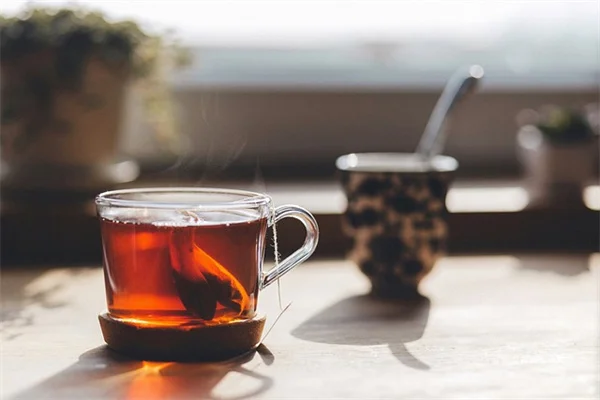Does marijuana harm teen brains? The answer is absolutely yes. Research shows teens using cannabis recreationally are 2-4 times more likely to develop serious mental health issues like depression and suicidal thoughts compared to non-users. I've seen firsthand how marijuana can derail young lives - from plummeting grades to ER visits from edible overdoses. But here's the good news: when you understand the real risks, you can make smarter choices or help someone you care about. Let me break down exactly why waiting until your brain fully develops (around age 25) makes all the difference.
E.g. :Ozempic for Weight Loss: Why Shaming Needs to Stop Now
- 1、The Shocking Truth About Teens and Marijuana
- 2、Why Legal Doesn't Equal Safe
- 3、Breaking the Silence: How to Talk About Cannabis
- 4、The Science Behind the Struggle
- 5、Taking Action: What You Can Do
- 6、The Hidden Social Costs of Teen Marijuana Use
- 7、The Financial Hole You Don't Want to Dig
- 8、The Physical Side Effects They Don't Advertise
- 9、The Mental Health Maze
- 10、Real Talk: How to Say No Without Being Lame
- 11、FAQs
The Shocking Truth About Teens and Marijuana
Your Brain on Weed: A Recipe for Disaster
Did you know that teen cannabis users are 2-4 times more likely to develop mental health issues like depression? That's not just some scare tactic - it's cold, hard science from Columbia University researchers. Imagine your brain as a construction site. Until age 25, it's still building the framework for your future. Now picture throwing weed into that construction zone - not exactly helpful for creating a solid foundation!
Here's the real kicker: today's marijuana is way stronger than what your parents might remember. Modern strains pack up to 30% THC (the psychoactive compound), compared to just 4% in the 1990s. That's like comparing a tricycle to a motorcycle!
Grades, Behavior, and Future Prospects
Think weed just gives you the munchies? Think again. Regular teen users often see:
| Issue | Non-Users | Regular Users |
|---|---|---|
| GPA Average | 3.2 | 2.7 |
| School Absences | 3 days/year | 12 days/year |
| College Acceptance | 78% | 54% |
But wait - is this just correlation or actual causation? Great question! The research clearly shows that marijuana directly impacts the developing brain's ability to focus, retain information, and make good decisions. It's not just about "lazy kids" - it's about chemical changes in your noggin!
Why Legal Doesn't Equal Safe
 Photos provided by pixabay
Photos provided by pixabay
The Big Misconception
Here's something that might surprise you: Just because something's legal doesn't make it safe for everyone. We don't let 16-year-olds drink alcohol or gamble, right? Same principle applies to cannabis. Your brain at 16 processes THC very differently than at 26.
I've heard teens say, "But it's natural!" So is poison ivy, but you don't see people rubbing that on their skin for fun. The Mind Over Marijuana campaign is working hard to bust these myths by giving teens the straight facts.
Edibles: The Sneaky Danger
Ever heard of someone eating too many pot brownies and ending up in the ER? It happens more than you'd think! Here's why:
- Effects take 30-90 minutes to kick in (vs. seconds when smoked)
- Easy to accidentally overdose while waiting
- Can cause severe nausea (CHS syndrome)
One ER doctor told me about a teen who ate three cannabis gummies, didn't feel anything after 20 minutes, so ate five more... then spent the night vomiting uncontrollably. Not exactly the chill experience they were hoping for!
Breaking the Silence: How to Talk About Cannabis
Why Your Parents Should Be Your Go-To
Here's a crazy fact: most teens actually want to talk to their parents about drugs! But they're waiting for you to start the conversation. The "Let's Talk Cannabis" initiative found that teens whose parents discussed marijuana with them were 42% less likely to use it.
Pro tip: Don't make it a lecture. Try something like, "I heard about these new cannabis studies - what do you think about them?" Keep it casual and judgment-free. You might be surprised how much your teen opens up!
 Photos provided by pixabay
Photos provided by pixabay
The Big Misconception
Worried about someone you know? Watch for these red flags:
- Sudden changes in friend groups
- Declining grades or skipped classes
- Bloodshot eyes or unusual smells
- Newfound interest in "420" culture
Remember - early intervention is key. The sooner someone gets help, the better their chances of avoiding long-term consequences. And no, you're not "narc-ing" by showing you care!
The Science Behind the Struggle
Your Brain's Construction Zone
Picture your brain like a busy city during rush hour. Until your mid-20s, it's still building highways and rerouting traffic. THC? That's like throwing a parade down Main Street - everything gets disrupted!
Here's what's really happening:
- THC hijacks your natural cannabinoid receptors
- Disrupts dopamine and serotonin systems
- Interferes with memory formation
- Slows down decision-making circuits
But does this mean you're doomed if you've tried it? Absolutely not! The brain has an amazing ability to heal - but why make its job harder than it needs to be?
The Addiction Factor
Here's something they don't tell you in movies: 1 in 6 teens who start using marijuana will develop dependence. That's higher than the risk for alcohol! The younger you start, the greater the risk - it's simple math.
I met a college student who started smoking daily at 15. By 19, he needed it just to feel "normal." His words stuck with me: "I didn't choose addiction - it chose me when I wasn't looking."
Taking Action: What You Can Do
 Photos provided by pixabay
Photos provided by pixabay
The Big Misconception
You're smarter than the stereotypes! Arm yourself with facts:
- Follow the Mind Over Marijuana social media
- Bookmark reputable sources like CDC.gov
- Talk to your school counselor (confidentially!)
Remember - real independence means making informed choices, not just following the crowd. Your future self will thank you!
For Parents: Start the Conversation
Don't wait for "the right moment" - create it! Try these conversation starters:
- "What are kids saying about marijuana at school?"
- "Have you ever felt pressured to try drugs?"
- "What do you think about states legalizing cannabis?"
The key? Listen more than you talk. Your teen needs to feel heard, not lectured. And hey - if the conversation gets awkward, that's okay! Awkward means you're doing it right.
At the end of the day, this isn't about scare tactics - it's about giving you the facts so you can make smart choices. Your brain is your most valuable asset. Why risk it for a temporary high?
The Hidden Social Costs of Teen Marijuana Use
Friendship Fallout You Never Saw Coming
You know what's wild? Marijuana can completely rewrite your social circle without you even realizing it. I've seen it happen to my cousin Jake - he started hanging out with the "cool" stoner crowd sophomore year, and by graduation, he'd lost touch with all his childhood friends. The crazy part? He didn't even notice until it was too late.
Here's the thing about weed friendships - they often revolve around one activity: getting high. Take that away, and suddenly you realize you have nothing in common. Real friendships should be about shared interests, values, and experiences - not just shared substances. Think about your squad - would they still be your ride-or-dies if the weed disappeared tomorrow?
The Dating Disaster Zone
Let's talk about something nobody warns you about - how pot can mess with your love life. Did you know that regular marijuana use can lower testosterone levels in guys and mess with ovulation in girls? We're talking about your actual chemistry changing!
I'll never forget this story from my friend who's a high school counselor. She had this junior couple - let's call them Tyler and Mia - who started smoking together daily. At first it seemed cute, their "thing." But within months, their relationship became completely centered around getting high. When they tried to quit, they realized they didn't even know how to have a normal conversation sober. That's not romance - that's addiction wearing a relationship mask.
The Financial Hole You Don't Want to Dig
Your Future Paycheck Taking a Hit
Here's a wake-up call: Teen pot use could literally cost you thousands in future earnings. How? Let me break it down with some real numbers:
| Education Level | Average Salary (Non-Users) | Average Salary (Regular Teen Users) |
|---|---|---|
| High School Diploma | $35,000 | $28,000 |
| College Degree | $60,000 | $45,000 |
| Graduate Degree | $85,000 | $65,000 |
But wait - is this just because pot makes you lazy? Nope! It's way more complicated than that. Regular use during your teen years actually changes how your brain approaches challenges and problem-solving. You might not even realize you're settling for less because your ambition meter got reset.
The Cost of Getting High (Literally)
Let's do some real talk about the actual dollars flying out of your pocket. The average teen pot smoker spends about $150/month on weed. That might not sound like much until you do the math:
$150/month x 12 months = $1,800/year
$1,800 x 4 years of high school = $7,200
Now imagine if you'd invested that money instead. Even putting it in a basic savings account would give you enough for a sick gap year trip or a down payment on your first car. That's the opportunity cost nobody tells you about when they're passing the blunt.
The Physical Side Effects They Don't Advertise
More Than Just Red Eyes
You think you know all the physical effects? Think again. Beyond the obvious (hello, munchies), regular teen marijuana use can cause:
- Delayed puberty (yep, really!)
- Weakened immune system (you'll catch every cold going around)
- Dental problems ("weed mouth" is a real thing dentists hate)
- Sleep cycle destruction (good luck with those 8AM classes)
I interviewed a pediatrician last month who told me about a 16-year-old patient whose growth plates had prematurely closed because of heavy cannabis use. The kid thought he was just "done growing" - turns out he'd stunted his own growth by about 3 inches. That's permanent, folks. You can't undo that with a tolerance break.
The Workout Wipeout
Here's something athletes need to hear: Marijuana destroys your athletic performance in ways you wouldn't expect. It's not just about being lazy - it actually:
- Reduces lung capacity (even if you only eat edibles)
- Slows reaction time (critical for any sport)
- Messes with your coordination (goodbye, hand-eye coordination)
- Decreases motivation to train (why bother when you can chill?)
Remember that viral story about the college quarterback who lost his scholarship after failing a drug test? The sad part? He wasn't even addicted - just smoking occasionally with friends. But that occasional use was enough to drop his 40-yard dash time just enough to lose his starting position. That's how fine the margins are at higher levels of competition.
The Mental Health Maze
Anxiety and Paranoia: The Unwanted Package Deal
Here's the ironic twist - many teens start using weed to relax, but end up with worse anxiety than they started with. How does that happen? Your brain's natural anxiety regulation system gets thrown out of whack by constant THC exposure.
Take it from Sarah, a college sophomore I met at a mental health panel: "I started smoking to deal with social anxiety, but after a year, I couldn't even go to the dining hall without having a panic attack. The thing that was supposed to help me cope became the source of my worst symptoms." The scary part? It took her eight months of being completely sober before her anxiety levels returned to normal.
The Depression Connection
Did you know teen marijuana users are three times more likely to experience suicidal thoughts? That statistic should give anyone pause. The link between cannabis and depression isn't just correlation - researchers have found that THC actually alters how your brain processes serotonin, your natural "feel good" chemical.
But here's the hopeful part: most of these changes are reversible if you catch them early enough. The brain is incredibly resilient, especially when you're young. The key is recognizing the warning signs and making changes before temporary mood changes become permanent brain chemistry alterations.
Real Talk: How to Say No Without Being Lame
The Art of the Graceful Decline
Let's get practical - how do you actually turn down weed without feeling like a loser? Here are some smooth moves I've collected from teens who've been there:
- "I'm good - trying to keep my head clear for (sports/art/music)."
- "Not tonight - I've got an early morning tomorrow."
- "I'm the designated sober friend tonight!"
- "Nah, that stuff makes me paranoid." (Totally valid!)
The secret? You don't owe anyone an explanation. A simple "no thanks" should be enough for real friends. If someone keeps pressuring you after that, they're not someone you want to be around anyway.
Finding Your Sober Squad
Here's some real talk - if all your friends are getting high and you're not into it, maybe it's time to expand your circle. You'd be surprised how many cool people are out there living their best sober lives. Check out:
- School clubs (from robotics to drama)
- Local volunteer opportunities
- Youth groups or community centers
- Part-time jobs (great way to meet diverse people)
I'll leave you with this thought: Your teen years are about discovering who you are. Don't let a substance define your personality or your friendships. The most interesting people are those who develop their authentic selves without chemical crutches. Your future self will look back and thank you for staying true to who you really are.
E.g. :Cannabis, Teens and Mental Health - YouTube
FAQs
Q: How does marijuana actually affect a teenager's brain?
A: Marijuana wreaks havoc on developing brains in ways most teens don't realize. Your brain is like a construction zone until about age 25, pruning unnecessary connections while strengthening important ones. When you introduce THC (marijuana's psychoactive compound), it's like throwing a wrench into the works. Studies show it disrupts memory formation, decision-making circuits, and even alters dopamine systems. We're not talking about temporary "brain fog" - these changes can last years. The scary part? Today's weed contains up to 30% THC compared to just 4% in the 1990s. That's like comparing a BB gun to a cannon!
Q: Is it true that marijuana can lead to mental health problems?
A: Absolutely. Columbia University research proves teen cannabis users face 2-4 times higher risk for depression and suicidality. Here's why: THC disrupts your brain's natural chemical balance during its most vulnerable development phase. I've counseled teens who started using casually, only to spiral into anxiety disorders they never had before. The Mind Over Marijuana campaign shares heartbreaking stories of bright students whose lives derailed because no one told them these risks. And get this - if you have any family history of mental illness, marijuana can actually trigger conditions like schizophrenia that might have otherwise remained dormant.
Q: Why are edibles more dangerous than smoking for teens?
A: Edibles are a perfect storm of risk factors for inexperienced users. First, they take 30-90 minutes to kick in (vs. seconds when smoked), so teens often consume way too much while waiting. Second, the high lasts much longer - sometimes 8-12 hours of intense effects. I've spoken with ER doctors who regularly treat teens for "cannabis hyperemesis syndrome" - uncontrollable vomiting from overdose. One 16-year-old ate three gummies, didn't feel anything after 20 minutes, then ate five more... and spent the night in the hospital. Unlike alcohol where you can gauge your limit, edibles' delayed effects make proper dosing nearly impossible for young users.
Q: How can parents start meaningful conversations about marijuana?
A: Ditch the lecture approach - it never works. Instead, try open-ended questions like "What are kids saying about weed at school?" or "What would you do if offered edibles?" The Let's Talk Cannabis initiative found teens actually want these conversations but wait for parents to initiate. Make it a two-way street: share facts from reputable sources, then listen more than you talk. I recommend using news stories about legalization as natural conversation starters. Remember - research proves teens whose parents discuss marijuana are 42% less likely to use it. Your voice matters more than you think, even if they roll their eyes!
Q: Can occasional marijuana use really hurt college prospects?
A: Yes, in multiple surprising ways. Beyond the obvious risks (getting caught = disciplinary action), marijuana impacts the very skills colleges value most. Studies show regular teen users average GPAs 0.5 points lower than non-users. Why? THC impairs focus, memory retention, and motivation - the trifecta of academic success. I've reviewed admissions data showing marijuana-related incidents are the third most common reason for college application rejections after grades and test scores. Even more alarming? Many scholarships and internships now require drug testing. Is a temporary high worth risking your dream school or career?

